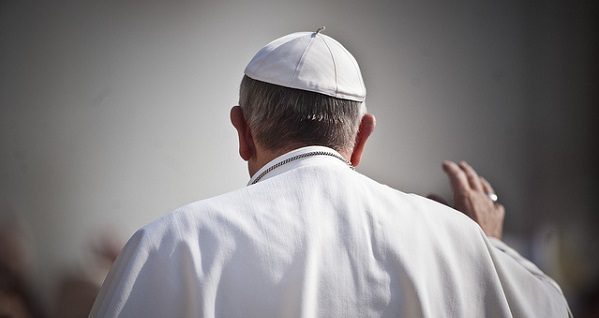
By Farouk Peru
I grew in a culture of reverence: Reverence for one’s elders, teachers, leaders and also religious leaders. It was ingrained in me fairly early in my life, as Islam was passed down to me through a chain of pious and knowledgeable people known as the ‘ulama’ (people of knowledge).
The ulama are to be respected and revered and never questioned, let alone rejected. Doing so is tantamount to rejecting the Prophet himself which threatens the authenticity of one’s faith.
In my 20s, however, I embraced a more liberal approach to Islam. I found that the ulama were not as infallible as I thought before. I began to question if it is at all possible for a person to formulate faith for another. This is what I later came to see as religious existentialism, that is how every human being’s personal circumstances colours his or her religious experience.
Bearing this in mind, it became impossible for me to fathom the idea of religious leaders altogether. That was more than 15 years ago.
They say time has a way of softening one’s viewpoint, and I think it rings true for me. The more I observed the world, the more I saw that most people did not want to formulate religion for themselves. On the contrary, they preferred to allow their own ulama to do the job for them. While I did not agree that this is the best course to spiritual evolution, I humbly admit that every person must choose for him or herself.
The institution of the Papacy of the Catholic Church is perhaps the most obvious religious institution in the world. It traces its origins to the disciple of Jesus himself, Simon Peter (d. 64 CE). Like all institutions, the Papacy evolved over time. History tells us that it did not attain political power until after the death of the Roman Emperor Constantine.
It also had periods of influence by Italian rulers. During the early medieval period, it also experienced the East-West schism resulting in an Eastern Orthodox Church. Despite all its trials and tribulations, it has survived to this day.
The Pope (after whom the Papacy is named) is the leader of the Catholic Church, also known as the Bishop of Rome. The Pope enjoys status of infallibility by virtue of the doctrine of the same name. He is thus protected from error. This is an actual article of faith or dogma and has been defended since the time of Counter-Reformation.
Of course, this would ring my alarm bells rather loudly. A human being with infallible authority giving Catholic fatwas (rulings) to millions? This does not work for me in the least. Perennial issues such as women church leaders, contraception, homosexuality, euthanasia and others are far too important to place in the hands of one man, however fallible he is assumed to be.
There are just far too many variables to consider, and it would be unacceptable to assume anyone can be infallible when giving a papal bull (the Catholic equivalent of a fatwa)
Enter Pope Francis.
I first took notice of Pope Francis when he was lauded for his work in helping the poor. He was still in my peripheral vision though, as I figured that these were simply publicity stunts to undo the damage done by the previous Pope with his conservative views. As time went by though, I began to see that Pope Francis was fearless and stood up for what he believed was true.
Here was a Pope who stood up against consumerism and unbridled capitalism. I imagine that this cannot be easy to stand for, especially in the Western world where the two are practically the dominant religion. Yet this is the central message of the Pope, mercy especially for the poor. How can a Muslim be against such a principle when he himself believes that God is all merciful, most merciful (Ar-rahmaan ar-raheem)? This truly warmed my heart towards him.
It did not surprise me in the least when I learnt that Pope Francis had a close relationship with the Muslims of his native Argentina. Apparently, Muslims who had broken off contact with the Vatican during the time of his conservative predecessors had taken the steps to re-establish interfaith ties when he became Pope.
Pope Francis actually believes the Quran and the Bible are the same, by which I understand to mean in essence of teachings, to lead humankind towards truth.
I still do not believe that we need religious leaders. I still think each individual needs to discover truth for him or herself. This journey of discovery is crucial for one to evolve as a human being and attain what the Quran calls ‘the soul of serenity’ (an-nafs al-muthma’innah, mentioned in Chapter 89 Verse 27).
However, there are leaders from faith-traditions who can facilitate this journey. They must be pure of heart and sound of mind. I would say that Pope Francis was such a person. If ever we need religious leaders, he would be the kind we need.
Farouk A. Peru is a human being in the world. He uses the faith – tradition of Islam to formulate his religious identity and as a means to truth.











